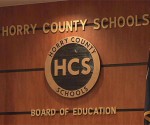Report Finds School Choice Benefits Public Schools, Too

(Image: Gage Skidmore, Creative Commons)
The Friedman Foundation for Educational Choice, a nonprofit and nonpartisan organization dedicated to researching and promoting school choice for children, has released a new report touting the benefits of school choice programs on the development of public schools.
Titled “Pursuing Innovation: How Can Educational Choice Transform K-12 Education in the U.S.?” the report summarizes the “state of competition in American K-12 education,” analyzing the prevalence of charter schools, private school vouchers, and tax-credit scholarships. The findings of the study suggest that growing educational competition improves the productivity of district schools.
First, the report sketches the existing state of K-12 education in the United States. It finds that, according to the National Assessment of Educational Progress, high school students’ results on standardized tests are stagnant. There also exists a concerning achievement gap between white and minority students. The stagnancy and disparity detailed by the report persist despite massive infusions of new money into public education.
It also finds that most forms of school choice are increasing. School competition is promoted through a variety of means, such as fee-paying private schooling, choice within public school districts, charter schools, and private school choice mechanisms such as vouchers, tax-credit scholarships, and education savings accounts. Of these, charter schooling and taxpayer-funded private school choice opportunities are increasing at the fastest rates.
The report notes that public schools tend to improve when faced with competition from other types of schools. Generally speaking, public schools are “closed systems” that are not used to change and have limited flexibility and autonomy. Increased school choice in school districts pressures public schools to innovate in an effort to hold on to their students.
Money actually leaves local public school systems when parents choose charter schools, voucher programs, and tax-credit scholarship programs instead of neighborhood public schools for their children. Thus, these forms of school choice drive the competition among schools; they incentivize public schools to adapt to changing circumstances and methods.
Interestingly, increased school-choice completion positively affected public schools. Researchers found that test scores of public school students surveyed increased when their schools were faced with competition.
The report offers several recommendations that can be adopted by policymakers to maximize the efficacy and productivity of competition-based education. It encourages policymakers to write legislation that facilitates new models of schooling, including those that have not yet been widely implemented. Educators should be trained to work in results-oriented schools that operate in competitive marketplaces, and a technical assistance lab should be created to disseminate knowledge and data among education leaders.
Additionally, the urge to over-regulate should be resisted, the report says: “Private schools should be allowed to maintain a reasonable degree of autonomy over instructional practices, pedagogy, and general day-to-day operations.”
The report concludes by affirming that educational competition has a positive effect on public schooling, and the trend of privatization should not be resisted by teachers unions or policymakers. Rather, these trends should be harnessed to increase the quality of K-12 education.
The full report is available online.
The post Report Finds School Choice Benefits Public Schools, Too appeared first on Education News.










